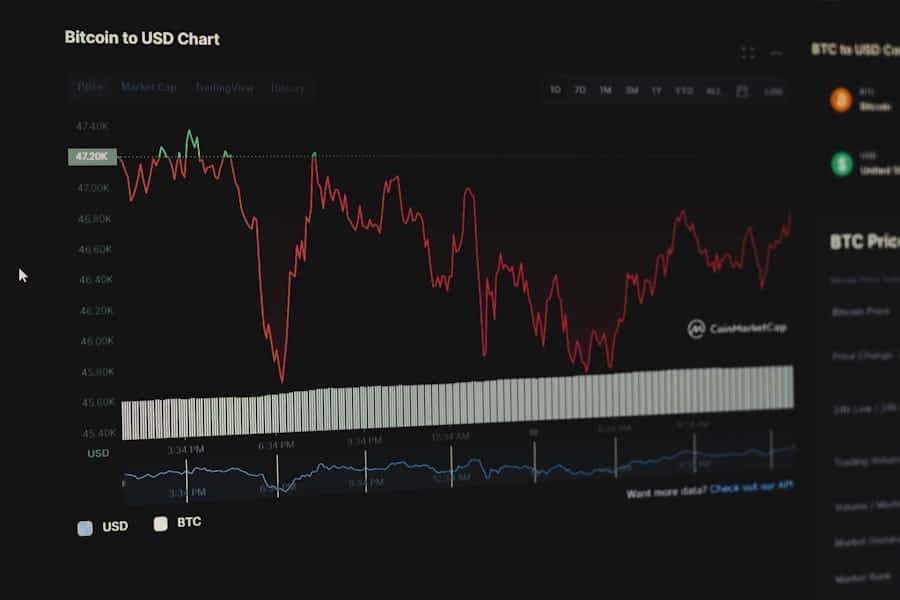Blockchain technology has emerged as a transformative force in the digital landscape, fundamentally altering how data is stored, shared, and secured. At its core, blockchain is a decentralized ledger that records transactions across multiple computers in such a way that the registered transactions cannot be altered retroactively. This technology was first introduced as the underlying framework for Bitcoin in 2008 by an anonymous entity known as Satoshi Nakamoto.
However, its potential extends far beyond cryptocurrencies, offering a robust solution for various industries seeking enhanced security, transparency, and efficiency. The architecture of blockchain consists of a series of blocks, each containing a list of transactions. These blocks are linked together in chronological order, forming a chain.
Each block is secured through cryptographic hashes, which ensure that any attempt to alter the information within a block would require changing all subsequent blocks, an almost impossible task without the consensus of the network. This decentralized nature eliminates the need for intermediaries, allowing peer-to-peer transactions that can significantly reduce costs and increase transaction speeds. As businesses and consumers increasingly seek secure and efficient methods for conducting transactions online, blockchain technology stands out as a promising solution.
Key Takeaways
- Blockchain technology is a decentralized and secure way of recording transactions and data, making it ideal for online marketplaces.
- The impact of blockchain on online marketplaces includes increased security, reduced fraud, and lower transaction costs.
- Advantages of using blockchain for secure online transactions include immutability, transparency, and reduced reliance on intermediaries.
- Blockchain ensures trust and transparency in online marketplaces through its decentralized nature and transparent transaction history.
- Case studies of successful blockchain-based online marketplaces, such as OpenBazaar and Bitify, demonstrate the potential for increased efficiency and security.
The Impact of Blockchain on Online Marketplaces
Decentralizing Online Marketplaces
Traditional online marketplaces often rely on centralized platforms that act as intermediaries between buyers and sellers. This model can lead to inefficiencies, high fees, and potential security vulnerabilities. Blockchain disrupts this paradigm by enabling direct transactions between parties, thereby reducing reliance on third-party platforms and fostering a more equitable marketplace environment.
Reducing Transaction Costs
One significant impact of blockchain on online marketplaces is the reduction of transaction costs. By eliminating intermediaries, blockchain allows for lower fees associated with payment processing and listing products. For instance, platforms like OpenBazaar leverage blockchain to facilitate peer-to-peer transactions without charging sellers for listing their products or taking a cut from sales.
Enhancing Speed and Diversity
This not only empowers sellers but also encourages a diverse range of products and services to flourish in the marketplace. Furthermore, the speed of transactions is enhanced as blockchain enables near-instantaneous transfers of value, which is particularly beneficial in an era where consumers expect rapid fulfillment of their purchases.
Advantages of Using Blockchain for Secure Online Transactions

One of the most compelling advantages of blockchain technology is its ability to provide secure online transactions. The cryptographic principles that underpin blockchain ensure that data integrity is maintained throughout the transaction process. Each transaction is recorded in a manner that is immutable and transparent, meaning that once a transaction is confirmed, it cannot be altered or deleted without consensus from the network participants.
This level of security is particularly crucial in online marketplaces where trust is paramount. Moreover, blockchain’s decentralized nature significantly reduces the risk of fraud and hacking. In traditional online marketplaces, centralized databases are often prime targets for cybercriminals seeking to exploit vulnerabilities.
However, with blockchain, data is distributed across numerous nodes in the network, making it exceedingly difficult for malicious actors to compromise the system. For example, in 2016, the decentralized marketplace Bitfinex suffered a significant hack that resulted in the loss of millions of dollars worth of Bitcoin. In contrast, platforms utilizing blockchain technology can implement multi-signature wallets and other security measures that enhance protection against unauthorized access.
How Blockchain Ensures Trust and Transparency in Online Marketplaces
Trust and transparency are critical components of any successful online marketplace. Blockchain technology inherently fosters these qualities by providing an open and verifiable record of all transactions conducted on the platform. Each participant in the network has access to the same information, which helps to eliminate discrepancies and build confidence among users.
This transparency is particularly beneficial in industries where provenance and authenticity are essential, such as art, luxury goods, and food supply chains. For instance, VeChain is a blockchain platform that focuses on supply chain management and product authenticity. By utilizing blockchain to track products from their origin to the end consumer, VeChain enables buyers to verify the authenticity of luxury items or ensure that food products meet safety standards.
This level of transparency not only enhances consumer trust but also holds businesses accountable for their practices. As consumers become increasingly aware of ethical sourcing and sustainability issues, the ability to trace products back to their origins through blockchain can significantly influence purchasing decisions.
Case Studies of Successful Blockchain-based Online Marketplaces
Several successful case studies illustrate the potential of blockchain-based online marketplaces to revolutionize traditional commerce models.
OpenBazaar eliminates the need for intermediaries by utilizing smart contracts—self-executing contracts with the terms directly written into code—ensuring that transactions are secure and transparent.
Users can browse listings without incurring fees or relying on a central authority, which empowers them to engage in commerce on their own terms.
Origin leverages blockchain technology to enable peer-to-peer transactions while providing tools for developers to build their own decentralized applications (dApps).
By focusing on user ownership and control over data, Origin fosters an ecosystem where users can transact without fear of censorship or exploitation by centralized entities. The success of these platforms demonstrates how blockchain can facilitate innovative business models that prioritize user autonomy and security.
Challenges and Limitations of Implementing Blockchain in Online Marketplaces

Despite its numerous advantages, implementing blockchain technology in online marketplaces is not without challenges and limitations. One significant hurdle is scalability; as more users join a blockchain network and transaction volumes increase, maintaining speed and efficiency can become problematic. For instance, Bitcoin’s network has faced congestion issues during periods of high demand, leading to slower transaction times and increased fees.
Addressing scalability requires innovative solutions such as layer-two protocols or alternative consensus mechanisms that can handle larger volumes without compromising security. Another challenge lies in regulatory compliance. The decentralized nature of blockchain can create complexities when it comes to adhering to local laws and regulations governing e-commerce and financial transactions.
Different jurisdictions may have varying requirements regarding consumer protection, data privacy, and taxation, making it difficult for blockchain-based marketplaces to navigate these legal landscapes effectively. Additionally, the anonymity associated with cryptocurrencies can raise concerns about money laundering and fraud prevention, prompting regulators to impose stricter guidelines that could hinder innovation.
Future Trends and Innovations in Blockchain-based Online Marketplaces
As blockchain technology continues to evolve, several trends and innovations are likely to shape the future of online marketplaces. One emerging trend is the integration of artificial intelligence (AI) with blockchain systems to enhance user experiences and streamline operations. AI can analyze vast amounts of data generated within blockchain networks to provide insights into consumer behavior, optimize pricing strategies, and improve inventory management.
This synergy between AI and blockchain could lead to more personalized shopping experiences while maintaining the security and transparency that blockchain offers. Additionally, the rise of non-fungible tokens (NFTs) has opened new avenues for online marketplaces, particularly in digital art and collectibles. NFTs are unique digital assets verified through blockchain technology, allowing creators to sell their work directly to consumers while retaining ownership rights.
Marketplaces like Rarible and OpenSea have capitalized on this trend by providing platforms for artists to showcase their NFTs without relying on traditional galleries or auction houses. As more creators embrace NFTs as a means of monetizing their work, we can expect further innovation in how digital assets are bought, sold, and traded.
The Potential of Blockchain to Revolutionize Online Marketplaces
The potential of blockchain technology to revolutionize online marketplaces is immense. By providing secure, transparent, and efficient transaction methods, blockchain addresses many challenges faced by traditional e-commerce platforms while fostering trust among users. As demonstrated by successful case studies like OpenBazaar and Origin Protocol, innovative business models are emerging that prioritize user autonomy and data ownership.
While challenges such as scalability and regulatory compliance remain significant hurdles to overcome, ongoing advancements in technology and collaboration among stakeholders will likely pave the way for broader adoption of blockchain solutions in online marketplaces. As we look ahead, it is clear that blockchain has the capacity not only to enhance existing marketplace structures but also to create entirely new paradigms for commerce in the digital age.
Blockchain technology is not only revolutionizing secure online marketplaces but also impacting various other industries. For example, the article

